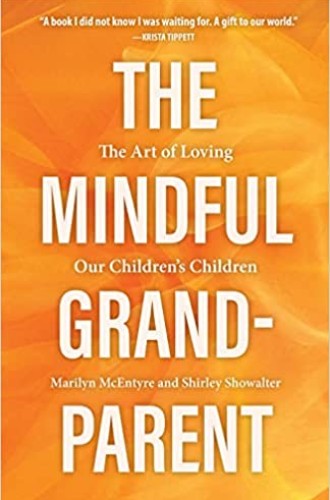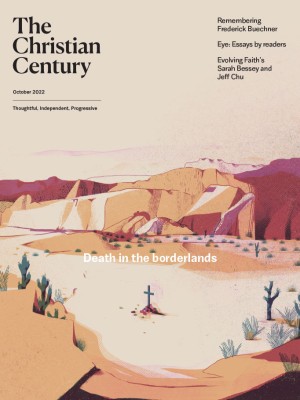Grandparenting with faith
Marilyn McEntyre and Shirley Showalter are grounded and experienced guides.
From the no-nonsense advice of Grandma Babs to the gauzy linen chic of #CoastalGrandma, today’s grandmas are trending in the online world. At their best, they are witty dispensers of everyday help and calming voices of home-centered wisdom amid our fractured families. Other times they offer gasps of vanity from postretirement women in sherbet-colored pants picking peonies while clean toddlers behind them clutch cuttings of their own. As lengthening life spans, remote working conditions, and the reach of technology leave few corners untouched, the roles of parenting and grandparenting are changing. How we negotiate those changes may leave us floundering.
Into this space comes The Mindful Grandparent, coauthored by professors, writers, and grandmothers Marilyn McEntyre and Shirley Showalter. They are grounded and experienced guides in navigating the new identities birthed in that liminal space that emerges when our children have children. With confidence that every elder has something to offer the next generation, McEntyre and Showalter weave a sensitive and practical guidebook for all who want to engage meaningfully and respectfully with their adult children and their grandchildren. They offer language and skills in how to bridge the expectations of our adult children with our own aspirations for the next generation.
Read our latest issue or browse back issues.
Written in bite-size chapters of three to four pages, The Mindful Grandparent is organized around learning moments—that is, moments of connection and meaning that grandparents especially may share with the little people in their lives. The generational differences offered by homes with even “slightly slower rhythms” mean we may be able to offer “refuge, respite, or periodic reframing of what our grandchildren have come to think of as ‘normal.’”
These learning moments include tender examples of engaging honestly with the big feelings of young children. Following up on a wail of being unfairly treated on the playground with a curious and kind question such as “What might make someone ‘mean’?” models a form of spacious equanimity. This is a particular gift that the mindful grandparent may have the time and awareness to offer.
Equally important are the book’s examples of how grandparents can introduce a “gentle challenge to assumptions we want them to question early and often,” such as the emergence of “a sense of property rights [that] starts almost as soon as a sense of self does.” All parents have lived through cries of “It’s mine!” and broken up the inevitable disputes that flow from clenched fists. Grandparents, often being one step removed, may have the bandwidth to shift the focus from “what belongs to me” to “what I belong to.” Even the subtle movement from using words like mine to words like ours starts to loosen something within us. Small, mindful learning moments abound in this book.
Reading The Mindful Grandparent as a recently minted Gigi to my own grandson—a child who has already learned to say the phrase, “Gigi’s nerves are shot!”—I found myself increasingly drawn into the wondrous calling to be a mindful grandparent. It is a call to be more expansive and more countercultural than the norms that have been modeled for me. It is an invitation to be more intentional about new relationships with my adult children and the unique contribution I can make to their children’s future. By word and example, McEntyre and Showalter make mindful grandparenting obtainable and wonderfully important.







